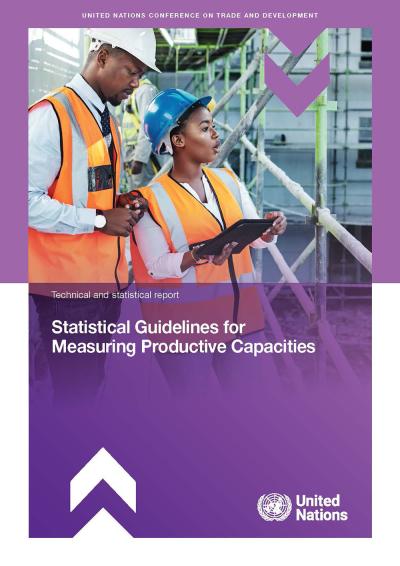Statistical guidelines for measuring productive capacities

These Statistical Guidelines for Measuring Productive Capacities aim to assist statisticians, economists, practitioners, and policymakers in utilizing the Productive Capacities Index (PCI) for policy analysis and in compiling adjusted measures of productive capacities.
The guidelines introduce updated statistical concepts and methods to standardize the measurement of productive capacities while laying the groundwork for further development. During its 56th session, the United Nations Statistical Commission discussed these guidelines with UN Trade and Development (UNCTAD), which reflects the longstanding emphasis on the limitations faced by developing economies and the need for structural transformation, a key concept in development economics and the Sustainable Development Goals (SDGs).
To address the lack of a consistent measurement method, UNCTAD developed a framework defining productive capacities as “the productive resources, entrepreneurial capabilities, and production linkages that determine a country's ability to produce essential goods and services.” The PCI, created following requests from member states, is an official metric for measuring these capacities.
194 countries, 42 indicators
Launched in 2023, the second-generation PCI covers 194 countries and economies from 2000 to 2022 and maps 42 indicators across eight categories: human capital, natural capital, energy, transport, information and communication technologies (ICTs), institutions, private sector, and structural change. The PCI follows a standardized statistical process, including data collection, validation, aggregation, analysis, and result release.
UNCTAD has established a Statistical and Technical Advisory Group (STAG) to ensure methodological rigor. The guidelines were peer-reviewed by STAG in January 2025. The PCI also benefits from guidance by a High-Level Advisory Board (HLAB) and peer reviews from academia and various UN entities.
As demand for productive capacity reviews and statistical capacity building has increased, UNCTAD has held capacity-building events with statistical authorities from multiple countries, with more planned for others, particularly small island developing states.
Over 40 developing countries have sought support from UNCTAD, leading to discussions about incorporating new dimensions into the PCI under HLAB and STAG guidance.


